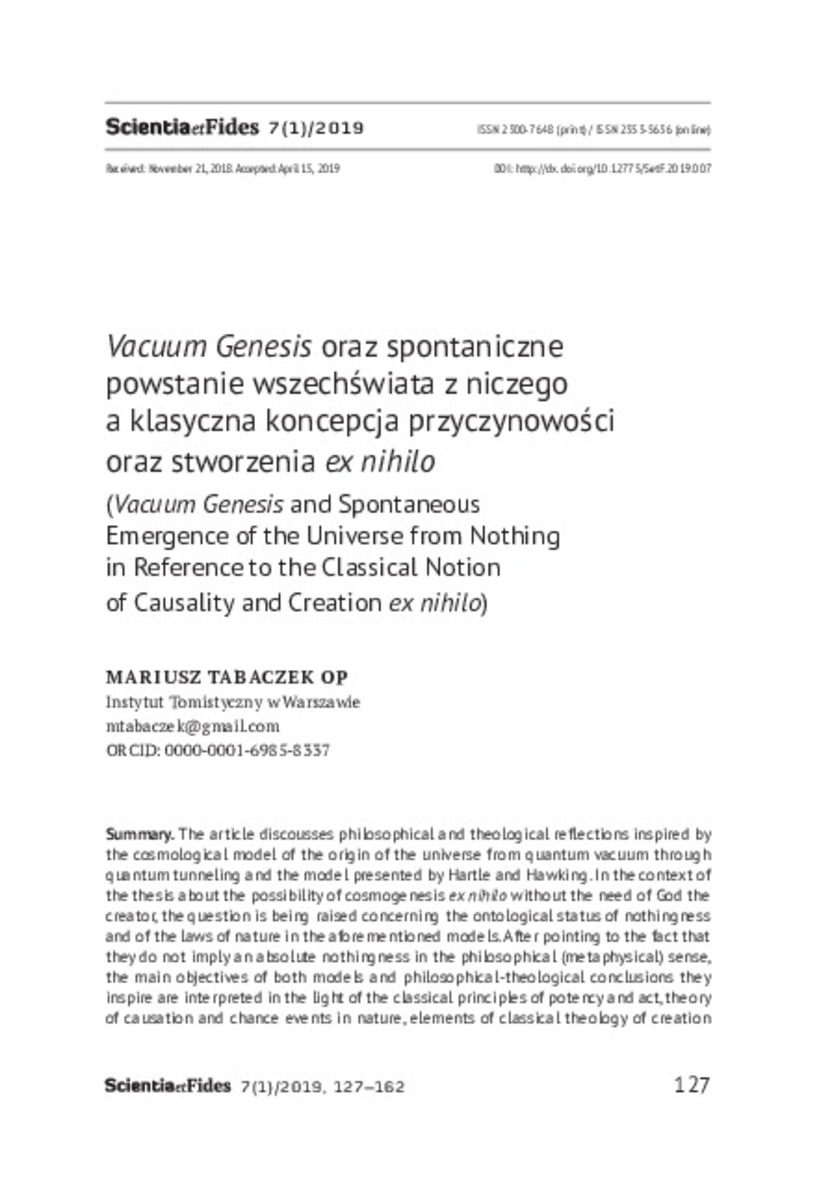Vacuum Genesis oraz spontaniczne powstanie wszechświata z niczego a klasyczna koncepcja przyczynowości oraz stworzenia ex nihilo
Otros títulos :
Vacuum Genesis and Spontaneous Emergence of the Universe from Nothing in Reference to the Classical Notion of Causality and Creation ex nihilo
Palabras clave :
quantum cosmology
prime matter
potency and act
Hartle-Hawking model
ontological status of nothingness
ontological status of laws of nature
creation of the universe through quantum tunneling
levels of abstraction in scientific knowledge
kosmologia kwantowa
materia pierwsza
możność i akt
model Hartle’a- Hawkinga
ontologiczny status nicości
ontologiczny status praw przyrody
powstanie wszechświata w zjawisku tunelowym
poziomy abstrakcji w poznaniu naukowym
przyczynowość
stworzenie ex nihilo
Fecha de publicación :
2019
Editorial :
Uniwersytet Mikolaja Kopernika
Cita:
Tabaczek, M (Mariusz). "Vacuum Genesis oraz spontaniczne powstanie wszechświata z niczego a klasyczna koncepcja przyczynowości oraz stworzenia ex nihilo". Scientia et Fides. 7 (1), 2019, 127 - 162
Aparece en las colecciones:
Estadísticas e impacto
0 citas en

0 citas en

Los ítems de Dadun están protegidos por copyright, con todos los derechos reservados, a menos que se indique lo contrario.








